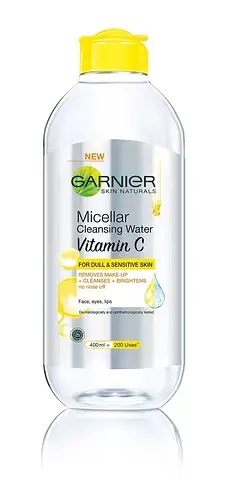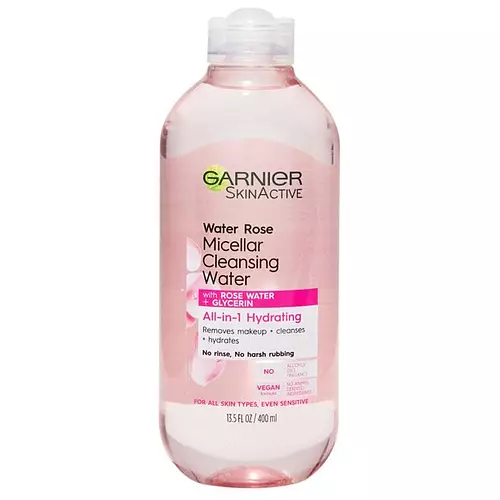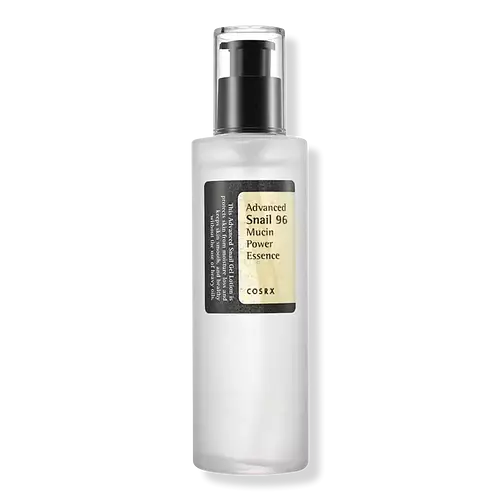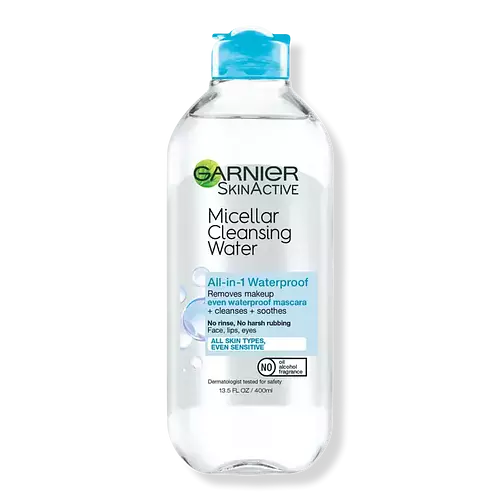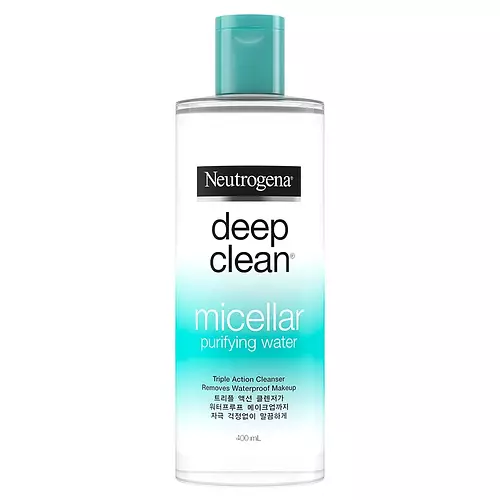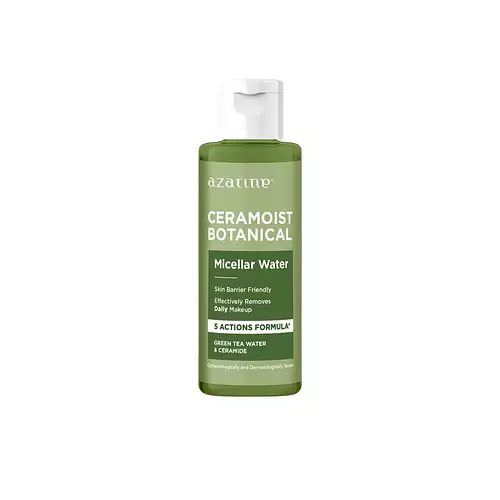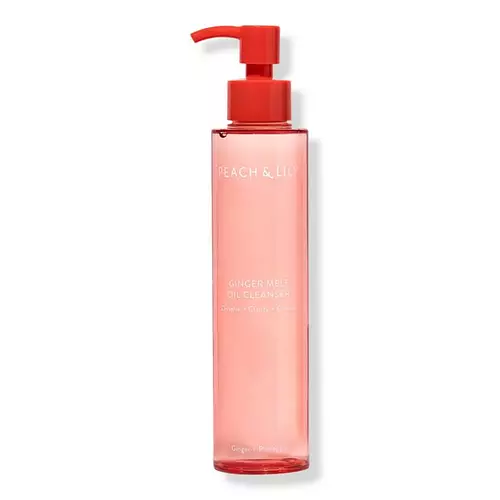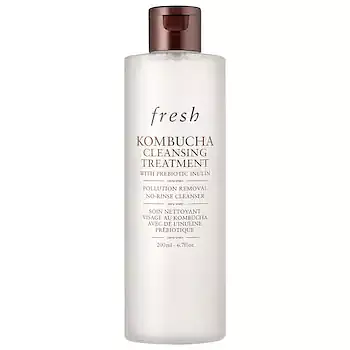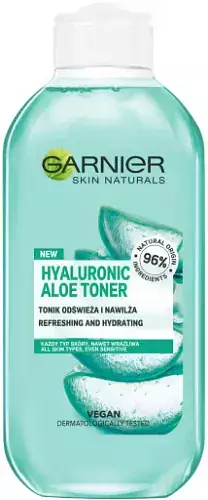Overview
What they are
These products are both cruelty-free and reef safe makeup removers. They have a total of 2 ingredients in common
Suited For
They're both likely to be good for dry skin and brightening skin
Free From
They both do not contain any harsh alcohols, common allergens, fragrances, oils, parabens, silicones or sulfates
We independently verify ingredients, and our claims are backed by peer-reviewed research. Spot a product that needs an update? Let us know.
Ingredient Info
Garnier Micellar Cleansing Water Vitamin C 8 ingredients
Garnier SkinActive Water Rose Micellar Cleansing Water 11 ingredients
At a glance
Click on any of the items below to learn more
Garnier Micellar Cleansing Water Vitamin C 8 ingredients
Garnier SkinActive Water Rose Micellar Cleansing Water 11 ingredients
Notable Ingredients
This product contains 1 ingredient that may have this attribute:
Benefits
This product contains 1 ingredient that may have this attribute:
This product contains 1 ingredient that may have this attribute:
This product contains 1 ingredient that may have this attribute:
This product contains 1 ingredient that may have this attribute:
This product contains 1 ingredient that may have this attribute:
This product contains 1 ingredient that may have this attribute:
This product contains 2 ingredients that may have this attribute:
Notable Ingredients
This product contains 1 ingredient that may have this attribute:
Benefits
This product contains 1 ingredient that may have this attribute:
This product contains 1 ingredient that may have this attribute:
This product contains 2 ingredients that may have this attribute:
Concerns
This product contains 1 ingredient that may have this attribute:
This product contains 1 ingredient that may have this attribute:
This product contains 2 ingredients that may have this attribute:
This product contains 1 ingredient that may have this attribute:
Ingredients Side-by-side
Ingredients Explained
These ingredients are found in both products.
Ingredients higher up in an ingredient list are typically present in a larger amount.
Water. It's the most common cosmetic ingredient of all. You'll usually see it at the top of ingredient lists, meaning that it makes up the largest part of the product.
So why is it so popular? Water most often acts as a solvent - this means that it helps dissolve other ingredients into the formulation.
You'll also recognize water as that liquid we all need to stay alive. Talk about multi-purpose! If you see this, drink a glass of water. Stay hydrated!
Learn more about WaterGlycerin is already naturally found in your skin. It helps moisturize and protect your skin.
A study from 2016 found glycerin to be more effective as a humectant than AHAs and hyaluronic acid.
As a humectant, it helps the skin stay hydrated by pulling moisture to your skin. The low molecular weight of glycerin allows it to pull moisture into the deeper layers of your skin.
Hydrated skin improves your skin barrier; Your skin barrier helps protect against irritants and bacteria.
Glycerin has also been found to have antimicrobial and antiviral properties. Due to these properties, glycerin is often used in wound and burn treatments.
In cosmetics, glycerin is usually derived from plants such as soybean or palm. However, it can also be sourced from animals, such as tallow or animal fat.
This ingredient is organic, colorless, odorless, and non-toxic.
Glycerin is the name for this ingredient in American English. British English uses Glycerol/Glycerine.
Learn more about GlycerinIngredient Ratings
Here's what our community thinks of the ingredients in these two products.
When to use
Garnier Micellar Cleansing Water Vitamin C 8 ingredients
Garnier SkinActive Water Rose Micellar Cleansing Water 11 ingredients


Reviews
Here's what our community thinks
Garnier Micellar Cleansing Water Vitamin C 8 ingredients
Garnier SkinActive Water Rose Micellar Cleansing Water 11 ingredients
harmonicinference
Gentle Everyday Cleanser
I have dry/dehydrated fairly sensitive skin, so it's important to me to use a moisturizing, non-stripping cleanser that...
Gentle Everyday Cleanser
I have dry/dehydrated fairly sensitive skin, so it's important to me to use a moisturizing, non-stripping cleanser that can still break down oil and dirt. I don't wear foundation, but I do wear sticky liquid eyeliner that this easily removes with some patience. I use this morning and night (if I cleanse in the morning) and I do rinse it off with water (although if I were double cleansing, I might not).
